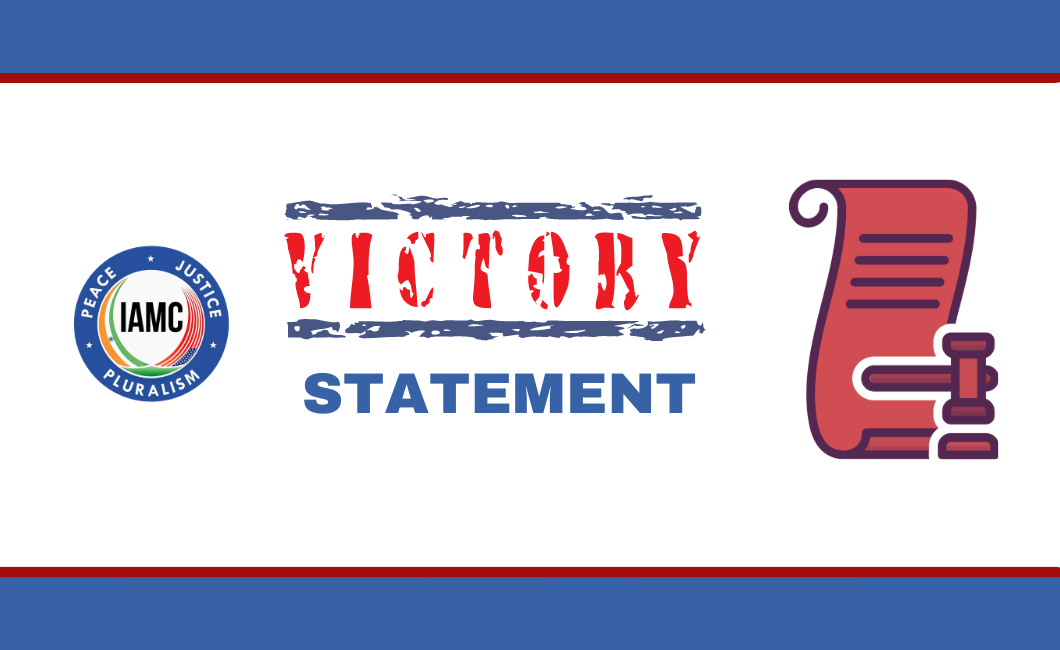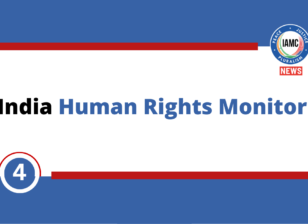DC Court’s dismissal of Hindu American Foundation’s bogus lawsuit against IAMC Executive Director upholds rule of law
A Washington, D.C. court dismissed a flimsy defamation lawsuit filed by the Hindu American Foundation (HAF) against academic Audrey Truschke and four activists, including Indian American Muslim Council Executive Director Rasheed Ahmed, for providing quotes critical of HAF in two Al Jazeera articles.
Washington, D.C. (December 22, 2022) – The Indian American Muslim Council (IAMC), a US-based nonprofit organization dedicated to social justice, peace and pluralism, welcomes and applauds a ruling by a United States federal judge who dismissed a frivolous lawsuit brought by the Hindu American Foundation (HAF) against IAMC’s Executive Director Rasheed Ahmed and four other civil rights activists.
Filed in 2021, the lawsuit had claimed that the defendants had, “conspired to publish… allegedly false and defamatory statements” about the HAF on the Al Jazeera website.
In a 28-page ruling delivered Tuesday, Judge Amit P. Mehta of the United States District Court for the District of Columbia found that not only did the defendants’ statements in question not defame HAF, “most of the statements are clearly statements of opinion,” which cannot be proven either true or false, and therefore did not meet the threshold of defamation.
Joshua Colangelo-Bryan, counsel at Dorsey & Whitney LLP, said, “As the court explicitly found, Rasheed Ahmed did nothing more than express his opinion, as he is perfectly entitled to do in this country. That’s why Dorsey decided to take this case in the first place.”
Judge Mehta’s ruling vindicates the belief that the lawsuit targeted Ahmed and the other defendants – John Prabhudoss, Chair, Federation of Indian American Christian Organizations (FIACONA); Sunita Viswanath and Raju Rajagopal, Cofounders, Hindus for Human Rights; and Audrey Truschke, Associate Professor, Rutgers University, New Jersey – only because they oppose the ideology of Hindutva, or Hindu supremacism, that HAF self-avowedly supports.
Demolishing the HAF’s claim that it is not linked to Indian Prime Minister Narendra Modi’s Hindu supremacist government and his Bharatiya Janata Party (BJP), Judge Mehta wrote: “HAF supports the political party currently in power in India, often labeled a ‘Hindu nationalist’ party.”
Judge Mehta also rejected the HAF’s claim that the defendants had conspired to defame it, saying that the lawsuit “comes nowhere close to stating a sufficient claim of civil conspiracy,” as the HAF “does not allege a single overt act by a co-conspirator in furtherance of the conspiracy.”
In a damning rejection of the HAF’s position, the judge wrote that the HAF’s request for discovery of the IAMC’s internal documents and communications to support its claim of defamation, “amounts to a fishing expedition, is speculative, and is not made in good faith.”
Judge Mehta rejected the claim that Ahmed had defamed HAF by telling Al Jazeera that, “US taxpayers’ money being used to keep hate groups in business is absolutely unacceptable and should concern all who believe in fairness, justice and government accountability.”
“This is another clear statement of opinion expressing a view on how government funding should be distributed, and which groups are deserving of federal relief funds,” Judge Mehta wrote.
The judge also rejected the HAF’s claim that it had the jurisdiction to try Illinois-based Ahmed merely because he represented IAMC, which is registered in Washington, DC.
Importantly, Judge Mehta also found that the HAF failed to prove that any of the defendants made their statements with “actual malice,” which is a critical threshold to prove defamation.
The HAF’s tactics are the same that Hindu extremists use in India to harass critics. With the lawsuit’s dismissal, HAF has failed in its objective to distract us from the work we are doing.
Read full judgement here



